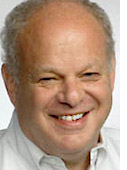Positive Psychology is a branch of psychology which sets out to build on people’s strengths and resources and instead of trying to fix what’s wrong, sets out to draw out what is right. Through empirical study, Positive Psychology focuses on positive emotions, strengths-based character, and healthy institutions.
Positive psychology was founded by Dr Martin Seligman (left) http://www.authentichappiness.sas.upenn.edu, Director of the Positive Psychology Center at the University of Pennsylvania. Seligman defines Positive Psychology: “As the scientific study of optimal human functioning that aims to discover and promote the factors that allow individuals and communities to thrive.”
Instead of looking at the need to dwell and ruminate on negative emotions to bring about change, positive psychology research centres on developing human strengths and drawing out a person’s potential.
Seligman sees Positive Psychology as standing on three main pillars:
- positive emotion, eg, joy, love, laughter.
- positive strengths and virtues, eg, generosity, gratitude, hope/optimism.
- positive institutions, eg, strong family, community.
What is positive psychology?
Positive psychology researchers examine ‘positive prevention’, and have discovered that strengths such as hope, future-mindedness, interpersonal skills, strong sense of values, perseverance, the capacity for intimate relationship, flow and insight, all act as ‘buffers’ against developing mental problems. A young person who is future-minded, skilled interpersonally and derives flow from sports or hobbies, is much less at risk for substance abuse, self-harm, involvement in crime, etc.
Like many other models of psychology and psychotherapy and even Neuro-Linguistic Programming (NLP), Positive Psychology has its roots in the Human Potential Movement and humanistic psychology as pioneered by Abraham Maslow and Carl Rogers. While Rogers’ assumption was that people were ‘self-directing and autonomous’, Maslow believed that people were ‘self-actualizers’. He shifted from studying pathological patients to people who were at their best, or ‘peakers’ as he referred to them, such as Ruth Benedict and Max Wertheimer.
Positive prevention is about identifying and amplifying strengths and personal and interpersonal resources.
Flow – a Positive Psychology approach
The researcher, Mihaly Csikszentmihalyi (pronounced cheeks sent me high), set out to discover when during the day, people were at their happiest. The times that people reported being most happy often occurred when they were at work, doing a task that totally absorbed their attention, a state that he named flow. The video below is Csikszentmihalyi giving a talk on his research.

